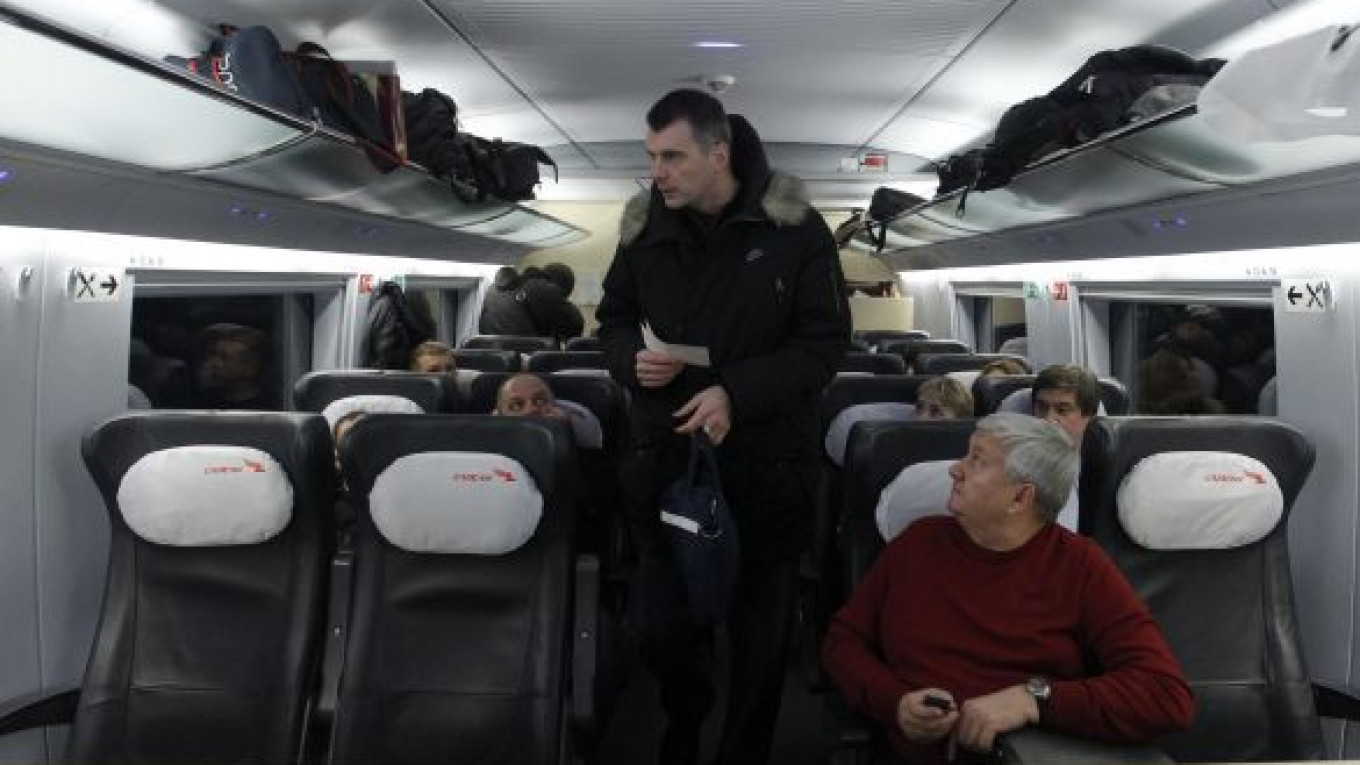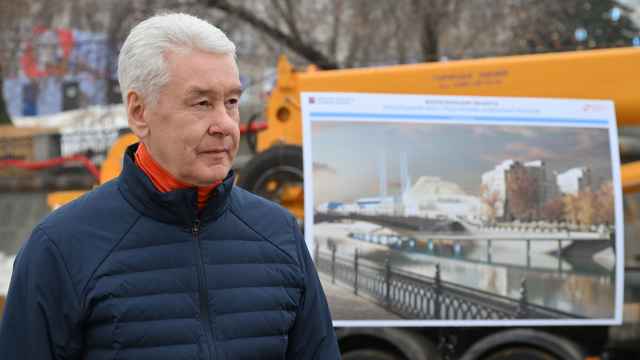Siemens and Samsung are among the European and Asian companies that may vie to build and operate a $21 billion rail link between Moscow and St. Petersburg before the 2018 World Cup football tournament.
Alstom, Bouygues of France, Italy's Finmeccanica and UniCredit and a unit of South Korea's Hyundai have also expressed interest in the high-speed link, said Yelena Shebunina, deputy head of High-Speed Rail Lines, in an interview in Moscow. A Portuguese group led by Brazil's Grupo Andrade Gutierrez expressed interest earlier this month, she said.
High-Speed Rail Lines, a unit of state monopoly Russian Railways, plans to name a shortlist of bidders in September or October, followed by more detailed negotiations on the technological, financial and legal aspects of the project before picking a winner, Shebunina said.
"Russia has never built a high-speed link, even though the rest of the world has been building them for the last 60, 70 years," Shebunina said. "The potential candidates have amassed significant experience, and this will be considered when the winner is picked."
Russia in its winning World Cup bid pledged to build new links between cities that will host games by the end of 2017. The winner of the Moscow-St. Petersburg contract will own the right to operate the service for 30 years, Shebunina said. That track will span about 660 kilometers.
Siemens has already submitted documents to take part in the contest together with local partners, the Moscow-based press service for Europe's largest engineering company said in an e-mailed reply to questions, without elaborating.
Hyundai Engineering & Construction said in an e-mailed statement that it's "looking at the high-speed rail project in Russia with much interest," while Samsung said it hasn't decided on entering the bidding process. Finmeccanica also confirmed its interest in the project. Officials for UniCredit and Andrade Gutierrez didn't immediately comment.
High-Speed Rail Lines is still looking at ways to cut the estimated cost of the project from 626 billion rubles ($21 billion) to as little as 512 billion rubles, half of which will be paid for by the government and the other half by the concessionaire, Shebunina said.
"We are holding consultations on how project costs may be optimized," Shebunina said. "The project is to be carried out in the midst of a crisis, so it's important to see how costs can be lowered."
High-Speed Rail Lines is also in talks with domestic banks including VTB Capital, Gazprombank and VEB about helping to fund the link either through loans or by buying bonds linked to the project, Shebunina said.
VTB said in a statement that it's following the project "with interest," as did VEB. Gazprombank's press service didn't respond to e-mailed requests for comment.
A Message from The Moscow Times:
Dear readers,
We are facing unprecedented challenges. Russia's Prosecutor General's Office has designated The Moscow Times as an "undesirable" organization, criminalizing our work and putting our staff at risk of prosecution. This follows our earlier unjust labeling as a "foreign agent."
These actions are direct attempts to silence independent journalism in Russia. The authorities claim our work "discredits the decisions of the Russian leadership." We see things differently: we strive to provide accurate, unbiased reporting on Russia.
We, the journalists of The Moscow Times, refuse to be silenced. But to continue our work, we need your help.
Your support, no matter how small, makes a world of difference. If you can, please support us monthly starting from just $2. It's quick to set up, and every contribution makes a significant impact.
By supporting The Moscow Times, you're defending open, independent journalism in the face of repression. Thank you for standing with us.
Remind me later.






